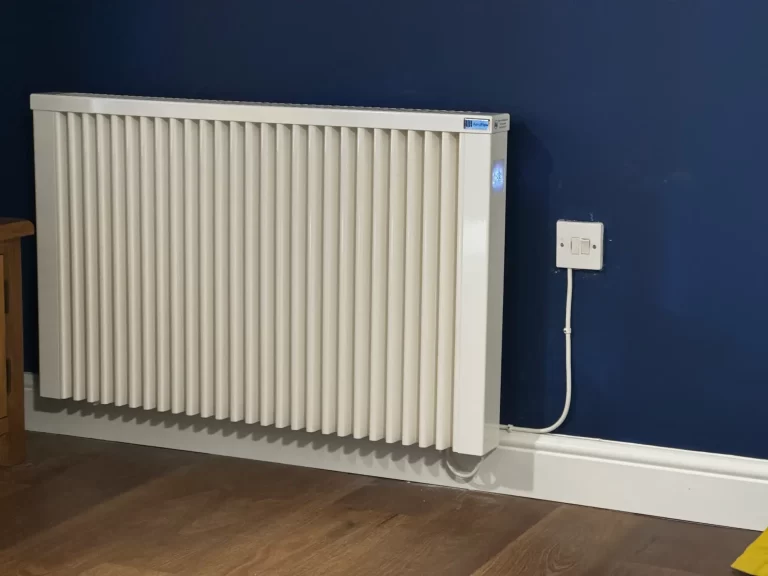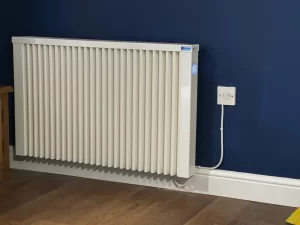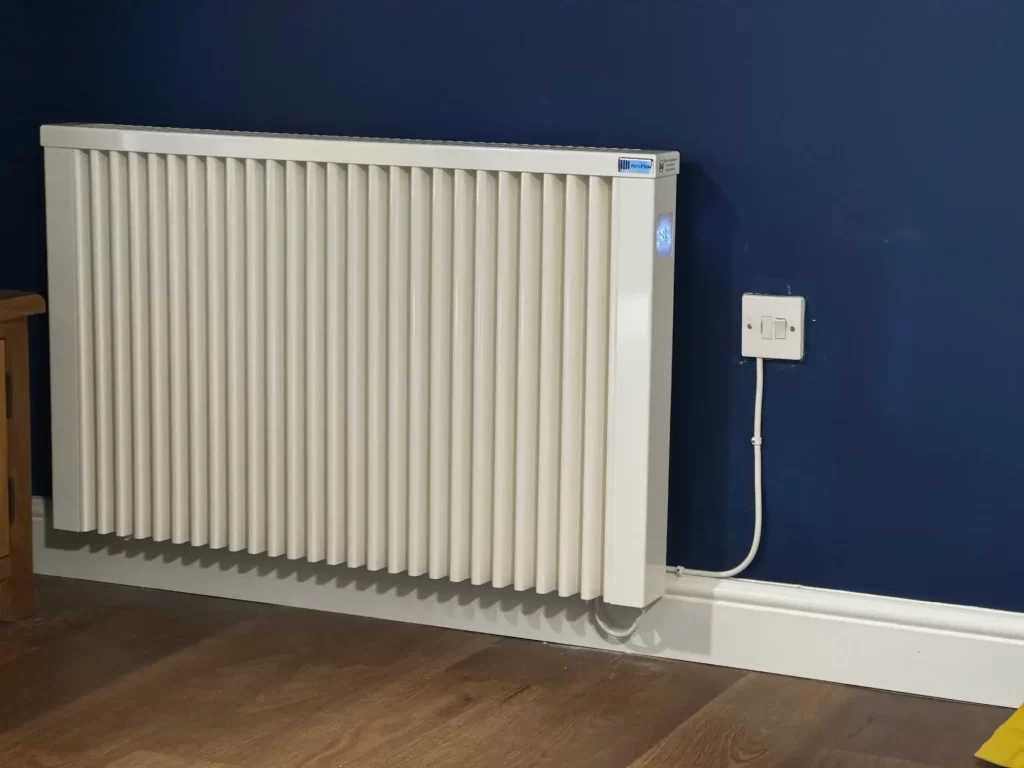Hot water is essential for commercial buildings, from office spaces and hotels to restaurants, healthcare facilities, and factories. Traditionally, gas-fired water heating systems have been the dominant choice. However, electric hot water systems are gaining popularity due to their efficiency, sustainability, and ease of maintenance. As businesses aim to reduce operational costs and meet sustainability goals, electric hot water systems offer a future-proof solution. This blog explores why electric hot water is the best option for commercial buildings and how it can benefit businesses in the long run.
Energy Efficiency and Cost Savings
Energy efficiency is a crucial consideration for commercial buildings that require a constant and reliable hot water supply. High Efficiency with Minimal Waste Electric hot water systems operate with nearly 100% energy efficiency, meaning that all the electricity consumed is converted into heat. Traditional gas systems, on the other hand, lose energy through exhaust gases and inefficient heat exchange, leading to wasted fuel and higher operating costs. Lower Operating Costs Over Time Although electricity can be more expensive per unit than gas, the efficiency of electric hot water systems means that businesses can achieve cost savings in the long run. Additionally, businesses can benefit from lower tariffs by using off-peak electricity rates and energy storage solutions like thermal batteries.
Environmental Benefits and Sustainability
With increasing pressure to meet carbon reduction targets and corporate sustainability goals, businesses must adopt greener energy solutions. Electric hot water systems play a key role in reducing a commercial building’s environmental impact. Lower Carbon Footprint Unlike gas-fired water heaters, which burn fossil fuels and emit greenhouse gases, electric hot water systems produce zero on-site emissions. When powered by renewable energy sources such as wind or solar power, they become a fully sustainable solution. Compliance with Net-Zero Targets The UK government has set ambitious net-zero carbon goals, including a ban on gas boilers in new buildings by 2025. Switching to electric hot water systems ensures businesses remain compliant with future regulations while demonstrating their commitment to sustainability.
Reliability and Low Maintenance Requirements
Commercial buildings require hot water systems that are reliable and easy to maintain to prevent disruptions in operations. Fewer Mechanical Components Electric hot water systems have fewer moving parts compared to gas boilers, reducing the likelihood of mechanical failures. This translates into fewer repairs, lower maintenance costs, and less downtime. No Risk of Gas Leaks or Carbon Monoxide Poisoning Gas water heaters pose safety risks such as leaks and carbon monoxide exposure. Electric hot water systems eliminate these dangers, creating a safer environment for employees, customers, and tenants.
Space-Saving and Installation Benefits
Commercial spaces often have limited room for mechanical and utility systems. Electric hot water systems provide a compact and flexible solution that helps maximize usable space. No Need for Ventilation or Flues Gas-powered water heaters require extensive ventilation and flue systems to expel exhaust gases, adding to installation costs and taking up valuable space. Electric systems do not produce emissions, eliminating the need for ventilation and simplifying installation. Flexible Placement Options Electric hot water heaters can be installed in various locations, including closets, under counters, and rooftop units, making them ideal for buildings with space constraints.
Scalability for Commercial Needs
Different commercial buildings have varying hot water demands. Electric hot water systems are highly scalable, making them suitable for both small businesses and large industrial facilities. Point-of-Use and Centralized Systems Businesses can choose between point-of-use electric water heaters, which supply hot water directly to specific areas (e.g., washrooms and kitchens), or centralized systems for high-demand buildings such as hotels and hospitals. Modular Expansion Electric systems can be easily expanded by adding additional units to accommodate growing business needs without requiring major infrastructure changes.
Integration with Renewable Energy Sources
As businesses seek to lower energy costs and reduce reliance on fossil fuels, integrating electric hot water systems with renewable energy sources is a logical step. Solar Power and Electric Hot Water Electric hot water systems can be powered by solar PV panels, reducing electricity costs and enhancing sustainability. Buildings with solar installations can use stored energy to heat water, further reducing dependence on the grid. Battery Storage for Off-Peak Usage Some businesses use thermal energy storage or battery storage to heat water during off-peak hours when electricity is cheaper, leading to additional cost savings.
Compliance with Government Regulations and Incentives
Governments worldwide, including the UK, are implementing policies that encourage businesses to transition to clean energy solutions. Bans on Fossil Fuel Heating The UK government is phasing out gas boilers in new buildings as part of its commitment to reduce carbon emissions. Installing electric hot water systems ensures compliance with these new regulations. Financial Incentives Businesses that switch to energy-efficient electric hot water systems may qualify for incentives such as: – Grants and subsidies for renewable energy adoption – Tax benefits for energy-efficient upgrades – Reduced electricity tariffs for off-peak usage
Improved User Comfort and Hygiene
Commercial buildings, particularly those in hospitality, healthcare, and food service industries, must maintain high hygiene and comfort standards. Electric hot water systems contribute to improved water quality and user experience. Consistent Water Temperature Electric hot water systems provide precise temperature control, ensuring a steady and reliable supply of hot water for kitchens, bathrooms, and industrial applications. Reduced Risk of Legionella Bacteria Legionella bacteria can grow in traditional water heating systems if temperatures fluctuate. Electric hot water systems maintain constant high temperatures, reducing the risk of bacterial growth and improving water hygiene.
Comparing Electric Hot Water to Gas and Heat Pumps
| Feature | Electric Hot Water | Gas Water Heating | Heat Pumps |
|---|---|---|---|
| Efficiency | Nearly 100% | 85-95% | 250-400% |
| Carbon Emissions | Zero (if powered by renewables) | High | Low |
| Maintenance | Low | High (boiler servicing required) | Moderate (heat pump servicing) |
| Installation | Simple | Complex (ventilation required) | Complex (space needed for heat exchanger) |
| Operating Cost | Moderate | Low (when gas prices are low) | Lowest (but high upfront cost) |
| Future-Proof | Yes (aligned with UK net-zero goals) | No (gas phase-out plans) | Yes |
While heat pumps provide even greater efficiency, they require higher initial investments and space for installation, making electric hot water systems a more practical choice for many commercial buildings.
Conclusion
Electric hot water systems provide a reliable, efficient, and future-proof solution for commercial buildings. With lower maintenance costs, environmental benefits, and integration with renewable energy, they offer businesses a smart investment that enhances sustainability and reduces operational costs. As the UK moves toward net-zero carbon emissions, commercial buildings must adapt to cleaner, greener heating solutions. Transitioning to electric hot water systems not only ensures compliance with future regulations but also delivers long-term energy savings, safety benefits, and scalability. For businesses looking to optimize efficiency while reducing their carbon footprint, electric hot water systems are the ideal choice for modern commercial buildings.






